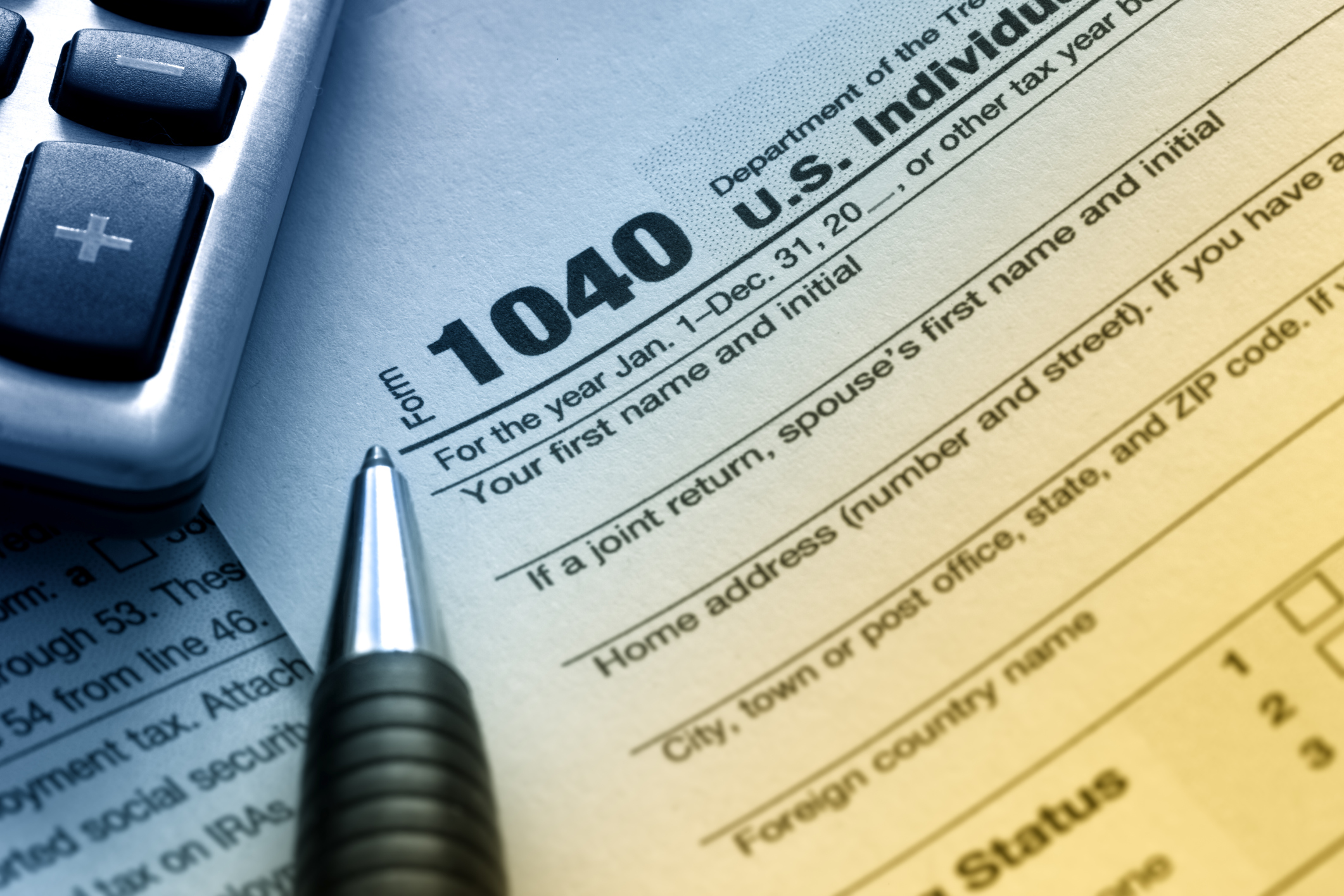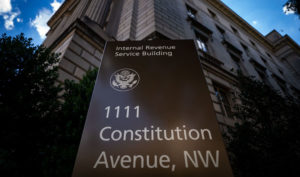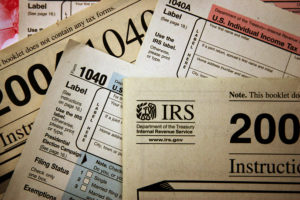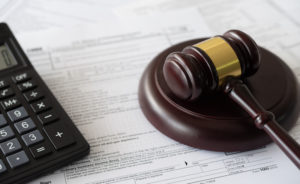
As court strikes down IRS tax preparer regulations, a scholar argues for a legislative fix.
The Internal Revenue Service (IRS) processed roughly 142 million individual income tax returns in tax year 2011 alone. Of the nearly 79 million completed by paid tax professionals, less than half—roughly 36 million—were submitted by regulated preparers such as CPAs, attorneys, actuaries and enrolled agents. Approximately 43 million were filed by unregulated commercial preparers, many resulting in misreported income and deductions, refund fraud, exorbitant service fees and even identity theft. Why do these practices remain unregulated?
The IRS asked this question as it endeavored in 2011 to rein in unscrupulous conduct when it finalized a new rule placing unregulated tax return preparers under federal oversight. The agency’s regulation required all unlicensed preparers to pass a competency exam, pass a background check, and obtain an identification number. However, this regulation proved in vain when the D.C. Circuit Court of Appeals, in a case called Loving v. IRS, invalidated the regulation less than three years later, ruling that the IRS lacks the statutory authority to regulate tax return preparers. With the IRS enjoined from implementing and enforcing its regulatory regime, tax preparer regulation would appear to be dead.
In a recent article, New York University School of Law graduate Alex Levy argues that Congress should bring this regulation back to life by granting the IRS explicit statutory authority to regulate tax preparers. Noting the pervasive fraud and incompetence uncovered by the IRS’s review of the return preparer industry in 2009, Levy highlights the public’s overwhelming support for increased oversight of tax preparers. Levy then examines the way in which the Institute of Justice, which brought the lawsuit, mischaracterized the role of tax preparers and distorted the legislative history of tax preparer oversight to secure a victory in court. Finally, pointing to the positive experiences of the few states that regulate tax preparers, Levy argues that the complexity of the problem and the need for uniformity warrants a national solution.
Two key elements define the tax preparer industry, says Levy: the virtually nonexistent barriers to entry and the billions of dollars at stake. This means that individuals often entrust their returns to check cashers, payday lenders, pawnbrokers and furniture retailers offering seasonal tax services. Exactly how many billions are on the line? Just in 2012, the earned income tax credit (EITC)—the nation’s largest antipoverty program—delivered more than $63 billion in refunds to 27 million qualifying workers and families. It is no surprise that unethical, unqualified preparers have swarmed unsuspecting low-income communities to get a piece of the action, Levy explains.
The IRS’s own fact-finding documented the problems. With mounting complaints of preparer misconduct, former IRS Commissioner Doug Shulman commenced a six-month public review of the industry before adopting its subsequently struck-down regulation in 2009. In addition to holding a series of public hearings with the tax preparation community, consumer advocates, state-level regulators and taxpayers, the IRS formally requested public comments on how best to increase taxpayer compliance and ensure uniform and high ethical standards for preparers. The results of the IRS’s study revealed that fraud, ineptitude, and inflated service fees pervade the tax preparer industry, according to Levy.
The consequences for taxpayers are often catastrophic, according to Levy. Studies by the Government Accountability Office (GAO) have illustrated how tax preparers have skimmed large fees off the top of client refunds, intentionally disregarded EITC rules, neglected to sign returns and closed up shop as soon as tax season ended, and ultimately left audited low-income taxpayers struggling to prove that the fraud was concocted by a swindling preparer. Even when preparers do not engage in willful fraud, Levy says, many lack the training to navigate the tax code. As a result, cash-strapped families miss out on much-needed tax benefits.
Levy notes that of the more than 500 comments received by the IRS during its public solicitation, the vast majority favored increased regulation. Therefore, the IRS proposed new registration and testing requirements in 2010. Without much explanation, observes Levy, the IRS claimed authority to promulgate the rule under an 1884 statute which provides that the “Secretary of the Treasury may regulate the practice of representatives of persons before the Department.”
The regulations—which became final in June 2011—required all unlicensed preparers to pass a certification exam testing knowledge of individual income tax preparation and to complete a background check. Additionally, preparers had to obtain an identification number, enabling the agency to track down preparers who consistently file improper returns. This third requirement is the only feature of the return preparer rules that remains intact after the court struck down the rule in Loving v. IRS, says Levy.
Before the regulations could be fully implemented, however, the Institute of Justice—a self-described “national law firm for liberty” that Levy likens to a “right-wing activist group”— filed a complaint in the D.C. District Court on behalf of three tax preparers. Framing Loving as a case about standing up for mom-and-pop shops that would be forced out of business by the regulations, the institute claimed that the IRS lacked the authority to issue the rules, according to Levy.
Levy analyzes the “clever” argument made by the Institute of Justice that the preparation of tax returns by commercial preparers did not constitute the presentation of taxpayers’ “cases” or the “practice of representatives” before the Treasury. He calls into question the Institute’s “strategic” argument that congressional failure to pass any of the nine bills dealing with tax preparers during the 2005-2013 period demonstrates that the IRS clearly lacked the authority to regulate preparers. Specifically, Levy shows that none of the bills languishing in Congress sought to empower the IRS with new authority—most either said that the IRS already possessed the power to oversee preparers or were silent on the issue.
At the same time, Levy criticizes the IRS’s invocation of the Treasury’s “inherent authority” to regulate the individuals before it and the agency’s resistance to grapple with its adversary’s arguments. Levy emphasizes that judges at both the trial and the appellate level even admonished the IRS for its “simplistic approach.” The Institute’s tactical arguments and the IRS’s “surprisingly unsophisticated” defense, Levy explains, combined to produce a victory for opponents of the IRS’s tax preparer rules.
In light of the D.C. Circuit Court’s decision to strike down the IRS’s regulations for want of statutory authority, Levy asserts that Congress should grant the agency explicit power to regulate tax preparers under Section 330. The legislative fix need not be more than one sentence long, and higher collection amounts from more accurate returns would likely more than cover the regulations’ costs.
Levy concedes that in today’s gridlocked political climate, such a one-sentence change may prove impossible. But if the government is serious about protecting taxpayers, he says, this is the only way forward.



